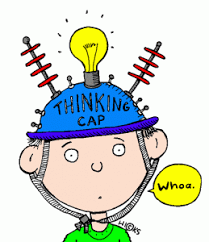Further discussion of my critique of the NESTA report

This blog is to do some further work on the paragraph that you questioned in response to my critique of the NESTA report. In my Critique (31.01.21) I wrote:
On their website, NESTA claims to focus on ‘the human, social and public dimensions of AI.’ https://www.nesta.org.uk/project/artificial-intelligence/ This essentialist view, propounded by both Hamilton & Friesen and Bayne in their respective papers is worth bearing in mind. Did the ‘Educ-ai-tion Rebooted’ report fulfil that focus? Yes, it did to an extent, concentrating on how to help the AIEd sector grow, and dedicating a large chapter to governance of data. Whether it fully explored the essentialist pedagogical values of technology, such as collaboration is debatable; I did not feel the report went far enough to consider these as potentially important.
I wanted to consider the report in the context of what NESTA claims to focus upon as an organisation when it researches AI. My understanding is that ‘the human, social and public dimensions of AI’ is an essentialist view? Is that correct?
Did the report fulfil this claim? Was the report a positive response to this claim, or did it merely show a reductive interpretation of ‘the human, social and public dimensions of AI’?
I used the word ‘propound’ to mean ‘put forward’, but as a neutral term, not with the implication of agreeing. I should have used ‘argued’. Bayne and Hamilton&Friesen warn against the reductive essentialist perspectives on technology. I would say that in the light of these negative perspectives, the NESTA report does get bogged down (such as governance of data). Yet, it fails to explore aspects of technology that I would argue are positive and essentialist, for example, the ability to collaborate through technology, which is a potential social benefit of AI within education.
My final sentence, I agree, was not sufficiently argued. What I was trying to get across is that not all essentialist perspectives on technology are necessarily reductive or limiting. For example, inherent pedagogical strengths that technology can bring to education, such as the ability for people to collaborate digitally. I question how far the report goes to explore those potentials of AI and technology. It, as Hamilton&Friesen and Bayne all declare, gets bogged down in the wrong essentialist perspectives, losing sight of the transformative potential of technology.
Does that make sense?




Thanks for this thoughtful and insightful response as these are not straightforward concepts to grasp.. The NESTA statement isn’t necessarily clear on whether it is taking an essentialist perspective on AI. But I would say yes it is on the basis that it implied AI has an independence from the human, the social and the public and that AI has an immutable quality – that it is ‘force’ that can be harness for social good but its force is what it is…
“Yet, it fails to explore aspects of technology that I would argue are positive and essentialist, for example, the ability to collaborate through technology, which is a potential social benefit of AI within education.” This is a really good point – that for all its positivity, the NESTA report doesn’t grapple with the generative possibilities of AI, rather *we* have to treat *it* like a potentially dangerous instrument.
I would say the pedagogical strengths you identify are less essentials (?) and more affordances of the technology. Technology is not sufficient on its own to ensure people act collaboratively but does allow people to act collaboratively – affording people to act on their aptitudes, intentions attributes, goals, plans, directives, ambitions etc.. to act collaboratively. For example, collaborative platforms often become used more as social networking sites for exchanging information rather than for true collaboration. But your key point linking essentialist perspectives to “losing sight of the transformative potential of technology” is an important one. Abandoning the essentialist idea that particular technologies will always lead to particular things happening (eg, collaboration) leads us to consider how other factors need to be gathered in place for a particular thing to happen (eg, collaboration) and can open up the possibility to recognise the generative (or transformative) possibilities of these social and technological elements coming together (an example is Twitter, devised as a broadcast-style app for sending out personal updates, became a social networking site through users engaging with the unintended affordances of the software that led to more social uses, the generation of communities of interest, conference back channels, political campaigning and so on that were never envisaged by the initial developers – were not perceived as the essential workings of Twitter – and which have gone on to shape the further development of the software as well as generating new forms of social behaviour.